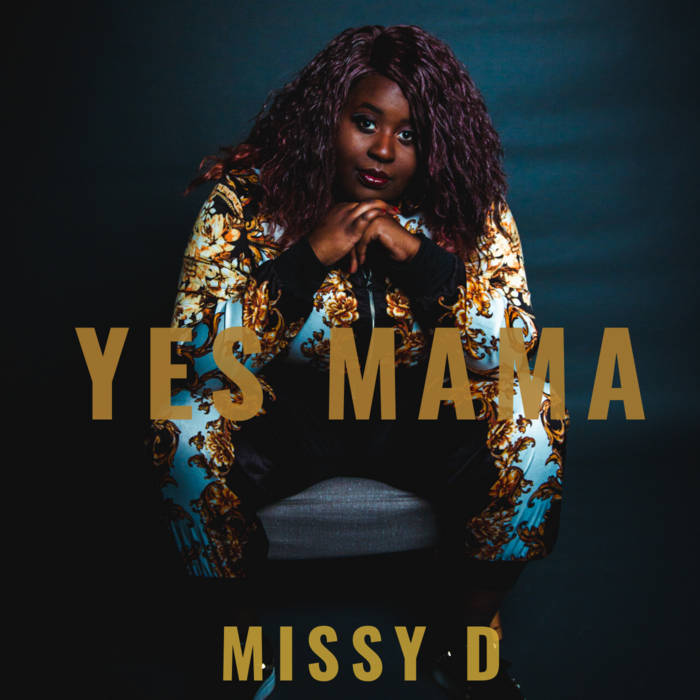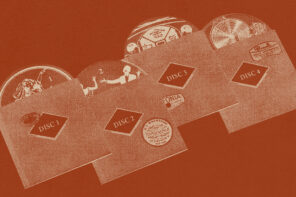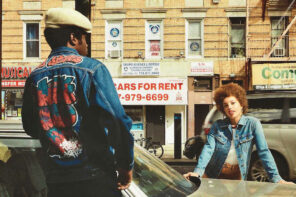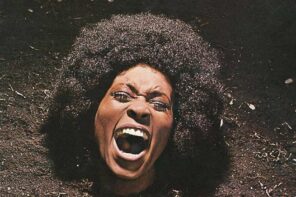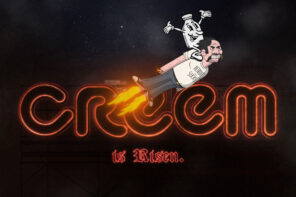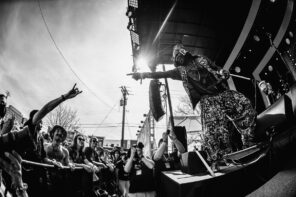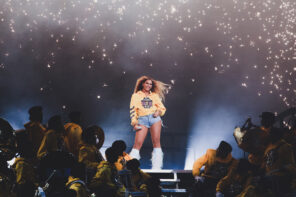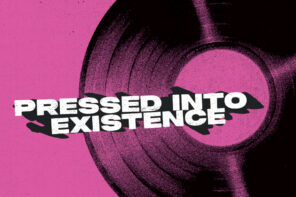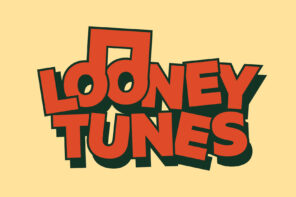A Raven + Crow Mixtape and an Interview with Missy D
Checking in with our friend and conributor Troy from Raven + Crow Studio again for another installment of Songs From The Black Artist Database (formerly known as Black Bandcamp). In the wake of the BLM protests he found a crowd-sourced list of black artists, one could support on what was called “Bandcamp Day” (days when the service would waive its usual rev share and 100% of payment for music would go direct to artists). That list developed into something called Blackbandcamp (which is not affiliated with Bandcamp) and the next mix he presented were all artists from it.
Here’s that mix
This time around Troy got into conversation with Vancouver-based rapper Missy D. The conversation with the bi-lingual artist not only centered around her music but what the past year has looked like for a black artist.
I’m trying to keep that hope. It is that message of reaching out and keeping hope alive… It doesn’t stop here. I’m hopeful. And I want to be a part of that change in some way.
Troy, over to you.
Troy: First of all, thanks. Nice to meet you. We came across your music through Black Bandcamp and really loved it, loved the ‘Yes Mama’ EP, and thought it would be a good fit for this series. You’re based in Vancouver?
Missy D: Not originally. I was born in Rwanda, but I grew up Ivory Coast and Zimbabwe. So, I grew up in Africa and came to Vancouver for university. I came to Vancouver to do a bachelor of science, and in the midst of it… I got my degree, but I always did music when I was a kid. I’ve been doing music since I was 11.
Troy: Yeah, I read that. That’s impressive. Is your family very musical, or was it just something that piqued your interest early on?
Missy D: People often ask me that question. I laugh because I’m like… Honestly, no. My family is not very musical, but definitely loves music. So, I grew up in a household… We collected CDs, listened to music all the time. The music channel was usually on at one point of the day. But I want to say my parents were more like—education first, and focus on school more than extracurriculars, I want to say. I think my dad used to play at his church, maybe, when he was a kid. Piano, but that’s… He always wanted to play the guitar, but never got to it. And then everybody else in my family—business or scientist type of vibes.
Troy: Okay. That gives me hope. I’ve got a three-year-old, and we almost constantly have music on. So, fingers crossed.
Missy D: You never know, might catch the bug. And I think that you never know what happens with artists. When I think of my family, all of them could actually be artists, it was just, I was the one who was maybe more adventurous and privleaged than them… I’m the baby of the family. Moving away from Montreal, where my family mostly lives, to Vancouver, which is on the other side of the country; finishing my science degree and being like, yeah, I’m going to try to be an artist. So, I’m a rebel sometimes.
Troy: Did you study music in school or did you study something else?
Finishing my science degree and being like, yeah, I’m going to try to be an artist. So, I’m a rebel sometimes.
Missy D: No, I studied sciences. So, I did a BSc degree, it was like a combined major where I did statistics, life sciences and environmental science.
Troy: Oh, cool. I actually studied geology in school and then opened a design studio for some reason, with my wife. But that’s great. I love science.
Missy D: Right. You can do it all.
Troy: You can do it all. I don’t know if I could do geology at this point. I’ve forgotten everything I learned. But thinking about speaking with you and just listening to your EP, which, again, I love, I was debating—the two stand-out tracks for me were ‘Melanin’ and then ‘Yes Mama’, the title track. And I love both of them so much. And I ended up putting ‘Yes Mama’ on the mixtape because I love the song so much, but I was torn because I’m like, we’re thinking and talking about these things that some of us hadn’t thought about and talked about as much, and I’m like—should I put ‘Melanin’ on there? It’s such a great song too. And I was like, I can’t put both—that’s like a rule I have… But then even just watching the video with my three-year-old before this, for ‘Yes Mama’, I was like, “This is really beautiful too.” I feel like videos sometimes help me think about the lyrics more and think about where you’re coming from and what you’re thinking about when you’re writing songs. Because it is the title track too, so I feel like that sometimes, to me, says that it’s maybe more important than some other tracks to you, as far as meaning goes, but I don’t know if you want to talk a little bit about that.
Missy D: Yeah. Yeah, for sure. It’s interesting because for the EP, I had a hard time coming up with a title. So, originally I was working on this project back in 2019, and it was a different concept. There were some different songs that are not even on the EP that didn’t make it to the final cut. And unfortunately, my dad passed away at the end of 2019.
Troy: I’m sorry.
Missy D: Yeah it was very hard. And I couldn’t finish the project fully at the time. And I was probably grieving, and sort of my headspace was… I don’t even remember all of those months really. But I was like, I have this project that I have to finish, but I can’t finish it. And I had written ‘Yes Mama’ already, but it was out of… It was actually based on a conversation I had with my mom while I was going through some hard times. And I always joke around with my friends like… You know when your parents talk a lot to you and lecture you over the phone and you’re like, “Yes, Mom. Yes.” You don’t understand what they’re saying at the time. They’re kind of giving you so much wisdom, but you’re complaining a little bit at the time. And then fast forward to at the end of the year, I was like, “Yo, everything mom was saying is right.” She was so right.
When I finally got back to picking up myself and kind of being like, “Okay. You know what? Let’s finish this album. My dad loved music.” And long story short, when I did my first project, I wrote a letter to him being like, “Hey, by the way, I’m going to make an album. This is my dream. I’m going to have an album and tell my grandkids I had an album when I was 23.” He was like, “Yeah, that’s your objective.” He was very objective-minded and like, “Okay, that’s your objective. Complete it. Go for it.” So, once again, I had that mindset of like, “Okay, I need to complete it, I need to finish this project and do it justice.” And I wrote ‘Melanin’. I wrote ‘Paint’. I wrote all these songs that kind of were talking about all the feelings I had within that six-month period. So, the album paints all these feelings I had from October to March.
So, it started with ‘Paint’, because I was like, “Okay, there’s this intergenerational pain that my family has been going through. There’s so much pain that I have. And, really, music is my way of expressing that.” Then ‘You’ which was like this anger track, like, “Okay, I’m going to get angry and talk about the things and people that hurt me.” I tend to smile and people think that I just smile because I’m always happy. And I’m like, I don’t know, it was just a thing I do. And then the third track was ‘Au Revoir’, which is the track where I say goodbye to my dad. My counselor asked me to write a letter to say goodbye. And I couldn’t write the letter, still haven’t really written the letter, but I wrote a song instead to kind of say goodbye to my dad. And then you get to number four, which is ‘Yes Mama’, the title track. And ‘Yes Mama’ was probably the most hopeful song because it stemmed from that conversation I had with my mom and being like, “Okay, you still have hope. You can still keep hope even through the tough times.” But the first time you hear it, you’re like, “Yes, mom. Sure. Yes.”… When I finished the project, Melanin’ was about the pride about where you come from, your roots, your melanin. Even before the injustices that happened in 2020, still, there was already so much about black lives sort of being either targeted or not supported, or even just the idea of what melanin means to people. And then ‘Watch Me’ was like… I kind of say watch me like, “See what I’m about to do.” I end with that track because I’m like, “Okay, if you think this is it. No, this is just the beginning.”
And I felt like ‘Yes Mama’ kind of summarized all of those feelings in one where I’m like ‘Yes Mama’ is a celebration track, it’s a hopeful track. To some people, it’s their ‘Au Revoir’, which is like… If they’ve lost their parents, they’re kind of like… I’ve gotten messages from a few people where they write to me being like, “Yo, I was crying to this song.” And I feel it. It somehow encompasses all those feelings that are in those six tracks, but it’s actually the one track. And at that point, when I was in the studio with my friend/producer, David Tallarico, I was like, “I think it should be the title of the EP. It makes sense.” And we made it happen, and then we got a grant to produce a video. And that was awesome to get a grant from Creative BC, to produce a video.
Troy: I kind of assumed the video was made during lockdown—was it made after COVID and everything, with all the phones and the iPads and mobile devices?
Missy D: Exactly—we got the grant before COVID, planned some stuff, had a bunch of meetings to come up with some creative ideas of being in a studio and filming some portrait like thing. It was amazing. And then COVID happened, and then all of us were like, “Yo.” I wanted to make sure the song came out on May 10th, which was Mother’s Day. I was like, “We need to have a video by May 10th. We need to have it by May 10th guys. How are we going to make this happen?” And it’s funny because we had so many brainstorming meetings to come up with a story line and some creative ideas, that we went back to the original concept of the song which, I told you, was this phone call with my mom.
I was like—oh, actually just go back to the core of the song, which is this phone call with my mom who lives in Africa. Because the song is also about the motherland and just talking to someone that’s so far away from you. And they were like, people are going through that right now, people want to connect. The only way they can connect is through these screens. So, why don’t we film that or why don’t we celebrate that? I asked a bunch of my friends to call their loved ones and film it. And the filming, you can’t hear the audio, but you can see the happiness and the joy that all of these folks had. And I even had some friends who unfortunately lost their parents were like, oh, I want to honor my mom, I want to honor my loved ones, or even…it wasn’t just their moms. Some of them had uncles, aunties, or mother figures, people, mentors that were in the video, and they kind of just filmed those moments. And to me, I was like… The messages I got from those people, of them just doing the video, I was like, okay, this is what this song is about. It’s exactly what this song is about. We made the video and I can’t be more proud of it because I’m like, yeah, I think it represents everything I wanted.
Troy: Yeah. It’s so great and timely. And so funny that you wrote the song before all of this lockdown and everything. Okay, so I remember part of the video, you have some people just holding up pictures and they seem kind of solemn, are those the friends that lost someone?
The only way to connect is through screens… but you can see the happiness and the joy that all of these folks had.
Missy D: Yeah, exactly. So, I wanted to make sure that… I know Mother’s Day can be hard for people, and I knew at the time as well that I was going to have my first Father’s Day without my dad. And I was like… I don’t know the feeling exactly of what losing a mom is, but I know what losing a dad means. I often feel weird about Father’s Day coming up. It felt right to want to celebrate people that have grief, but also want to celebrate. All these folks were like, no, I actually want to honor my mom. I actually want to honor this person and still celebrate her even if she’s not here physically with me. And I’m like, yes, let’s do it. However you want to show it, whatever you want to show. I think it was very beautiful—you have a picture of her, there’s different people, you will see some people are kind of teary eyed. Some people are more like, hey, this is my mom. I accepted all those feelings.
Troy: That’s really nice. Yeah. I love the EP, and I’m so glad that we found you. How are things? I’m always curious both about how our interpretations of the news and other countries… And I know it’s just Canada, it’s not that far, but still it is another country. We get the news that COVID… It’s better in Canada but then it’s so much worse. And then even just the uprisings here and all the social change that has been brought about by all this terribleness but it’s resulting in some positive change, I really think. How are things there, in both senses, I guess?
Missy D: I think we definitely feel it. Being so close to the States and having our own work to do as well, you kind of pay attention to the news all the time. And I think social media as well kind of puts you into that world. What gets on your news feed constantly is those moments. You’ve probably talked to a few artists. I think often artists will be like, “Yo I’m a big empath.” And I’m very emotional most of the time. So, I think the news to me and everything that’s happening in the States and in the world kind of affects my mental health the same way COVID does, the same way my own personal life does.
That’s something that I’ve been navigating a lot this past year. How do I stay up to date with everything that’s happening in the world and around me, and reacting to videos of black lives that are lost or all of these different things, and still also get to work and do my nine to five or whatever you’re doing, and sort of live day by day and walk out and be like, “Okay, am I safe? Am I cool? Am I all right?” I think it’s hard. That would be my first answer—it’s hard. And then at the same time, it does bring up the things that I do want to speak to. It does bring up sort of my creativity into wanting to write about these things, wanting to send out a message to people, whether it was even in ‘Watch me’. I think in that last song, I talk about sort of unlearning some of the things that we’ve been taught to think about, or sort of decolonizing our minds.
And people think that I’m talking about just white people, and I’m like, no—actually, there is also internalized racism. There are so many different concepts that people don’t understand fully that I’m like, yeah—we all need to do some type of work to really rebuild the society. Because we’re getting smarter. We’re getting smarter, and therefore there are other things that we have to unpack. There are other things that we have to redesign, and I think it’s going to take all of us to do it. And that’s the hardest part of it. Not all of us want to do it, perhaps. Or how do you make sure that everybody understands why a certain house on the neighborhood is not doing well. And therefore we need to take care of that house before we take care of the other houses that are also in need of help.
I think people don’t often understand that concept, and…therefore they want to say all lives this, and I’m like, it’s not about that…there’s so many examples that people use. “Why are we talking about breast cancer for one month and not about other diseases for a month?” But I feel like that really dumbs down the whole concept of it. I know that’s how I can explain it to some people. And I’m like—the house is burning there. So, therefore we need to help the other houses. But all the other houses also need help in their renovation. We get it.
We’re getting smarter, and therefore there’s other things that we have to unpack. There’s other things that we have to redesign, and I think it’s going to take all of us to do it.
Troy: Yeah. Your add-on to your house isn’t as important as that house on fire, right there.
Missy D: Yeah. Right there. It’s annoying. It’s frustrating. It’s sad. And then to see it happen over and over again. It makes me reflect about mental health because I don’t know how… From last week when Daunte Wright… Every time things like that happen… I have to pause. Sometimes I have to not pay attention to it, or try not to pay attention to it or to stand up and talk about it. I even wait until the end of the day, I might see it in the morning and wait until a long time, and then as soon as I dive into it, I’m like, “Oh my gosh. Okay. This world is awful.” I go back to my seven year old self where when I saw things on the news, I’ll be like, “But mom, why?” Again. I was like, I asked my mom, “Why are people like this? I don’t get it.”
Troy: Yeah. It’s hard not to be like, “Well, we’re doing all this work right? Collectively as a society.” And then something like last week, it’s just like, “Here we go again.” And it’s hard not to get discouraged and not just be like, “Well, it’s not working.” It’s hard not to give up, or want to give up, I guess. But yeah, I still am overall, largely hopeful. And just seeing just the conversations, and the proliferation of conversations, and how just across the spectrum… I don’t know. I’m still hopeful.
Missy D: I’m trying to keep that hope. When I think of something like ‘Yes Mama’, it is that. It is that message of reaching out and keeping hope alive. Because I think sometimes it’s easy, and I know when I was definitely in the depth of my… waves, it hits you in waves. So when I was in the depth of my grief, I was like, “What’s the point of all of this? Is there any hope?” Same way that I have some of my days where I call my best friend and be like, “Honestly, I don’t think we’re getting better. This world is getting worse.” My friend has to coach me into being like, “No, Missy. There’s hope. People are working hard. People can’t run away from it. It’s pretty clear right now to them.” And there are also people that are really putting the effort to navigate those spaces and amplify voices. There are so many, amongst the one house that’s burning, there are other houses that are needing help as well. So it’s like it doesn’t stop here. I’m hopeful. And I want to be a part of that change in some way.


